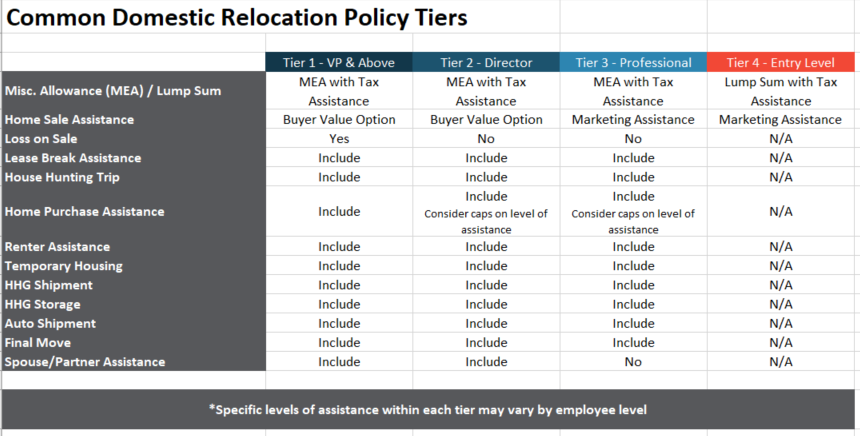As the world of work continues to evolve, companies are rethinking how they support employee moves. The short answer: yes — many organizations continue to offer relocation services, but how they deliver those services has changed. Employers that invest in modern, strategic relocation programs gain a competitive edge in talent attraction, retention, and cost control. Partnering with a specialized provider like Global Mobility Solutions (GMS) helps organizations navigate complexity and deliver moves that are faster, compliant, and more employee-focused.
Why companies still provide relocation services
Even with remote work and hybrid models on the rise, relocation remains critical for roles that require in-person presence, leadership placements, or specialized onsite projects. Companies provide relocation benefits for several business-driven reasons:
Talent acquisition and competitiveness: Offering relocation support widens the talent pool. Candidates are more likely to accept roles when they know their move will be handled professionally.
Retention and productivity: A smooth relocation reduces disruption, shortens time-to-productivity, and increases employee satisfaction — lowering the risk of early turnover.
Global expansion and mobility needs: Organizations entering new markets or moving employees across borders must manage immigration, tax, and cultural onboarding — tasks best handled through structured relocation programs.
Cost predictability and compliance: Well-designed relocation programs create visibility into spending, reduce ad-hoc reimbursements, and ensure compliance with local employment and tax laws.
How relocation programs have changed
Relocation services have shifted dramatically from ad-hoc reimbursements to integrated, tech-enabled experiences designed to meet the expectations of a modern workforce. Today’s programs emphasize digital self-service and transparency, giving employees clear timelines, real-time updates, and mobile access to all their relocation tasks and benefits. Companies are also relying heavily on data-driven decision-making, using analytics to benchmark costs, identify bottlenecks, and refine their policies for better outcomes.
At the same time, relocation packages have become far more flexible and employee-centered, often incorporating lump-sum options, temporary housing, house-hunting support, and family assistance to meet a variety of needs.
Finally, global mobility programs now demand strong risk management and compliance expertise, especially for cross-border moves that involve immigration requirements, tax equalization, and adherence to local regulations—areas where precision is essential to avoid costly mistakes.
Why work with GMS for your talent mobility needs
Designing and running an effective relocation program demands expertise, infrastructure, and ongoing management. GMS delivers that capability through a proven combination of experience, technology, and customer-first service:
Specialized industry expertise: GMS is focused exclusively on global mobility and employee relocation. That means deep knowledge of domestic and international moves, tax and compliance issues, and best-practice policies that scale with your business.
End-to-end program management: From policy consulting and vendor coordination to move execution and reporting, GMS handles the whole lifecycle. That reduces the burden on HR and provides a consistent, high-quality experience for employees.
Modern, user-friendly technology: GMS’s platform gives employees and mobility teams transparent access to tasks, timelines, and documents. Real-time visibility improves communication, reduces questions, and speeds decision-making.
Cost control and measurable outcomes: With robust analytics and vendor management, GMS helps companies predict and manage relocation spend while improving service quality.
Employee-centric service: Moving is stressful. GMS prioritizes the employee experience with expert move coordinators, family support services, and flexible offerings that increase acceptance rates and shorten ramp-up time.
Relocation remains a strategic investment for companies seeking to hire the best talent, expand globally, and maintain high productivity. But today’s relocation programs must be more innovative, more flexible, and tech-enabled. That’s where GMS shines — delivering tailored programs, world-class execution, and measurable results so your people can move confidently and your business can move forward.
Ready to modernize your relocation program? Contact GMS to schedule a consultation and see how a strategic relocation partner can save time, reduce risk, and improve the employee experience.





